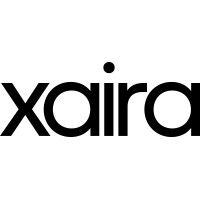BigHat Biosciences has added another pharma partner and more cash to its balance sheet as the antibody specialist prepares to enter the clinic next year.
The Bay Area startup will announce a research deal with Eli Lilly later on Thursday, CEO Peyton Greenside exclusively told
Endpoints News
. The partnership focuses on one antibody target to start, with an option to expand to a second program.
The two companies aren’t disclosing specifics or financials of the deal, but Lilly is part of a new investor group extending BigHat’s
Series B round
from $75 million to over $120 million. That raise was first announced in 2022. Lilly’s equity investment is through
its Catalyze360 program
. Other new investors include Merck (via its Global Health Innovation Fund), Samsung Ventures, BOLD Longevity Growth Fund and Intermountain Ventures.
Founded in 2019, BigHat started out by combining advances in machine learning and synthetic biology. The company now has about 100 employees out of its San Mateo, CA headquarters, and is expecting its first drug, an antibody-drug conjugate for gastrointestinal cancers, to start human testing in 2026. Lilly is the latest large drugmaker to partner with BigHat, joining the ranks of AbbVie, Amgen, Merck and Johnson & Johnson.
The company swapped CEOs in January, with Greenside stepping into the top role after previously serving as chief scientific officer. She replaced Mark DePristo, her fellow co-founder, describing the time as a “natural transition” point as the company approached the clinic.
“Mark wants to go back to the roots of early stage, disruptive technology, and I’m really excited to take us forward,” Greenside said.
The AI-for-antibody-design space has gotten crowded over the past few years. Nobel Prize-winning breakthroughs like Google DeepMind’s AlphaFold model to predict protein structures and David Baker’s protein design feats have
fueled investor interest
. Startups like
Xaira Therapeutics
and Generate:Biomedicines raised hundreds of millions of dollars. Alphabet’s Isomorphic Labs is also expanding into biologics after raising a $600 million round, CEO Demis Hassabis
told Endpoints
earlier this month.
Given the competition, Greenside said BigHat has focused on doing more than just optimizing binding affinity and stability of antibodies. The pipeline reflects that by focusing on ADCs and T cell engagers rather than typical monoclonal antibodies.
Its research also allows more functions for these drugs, like so-called logic gates for molecules. This includes requiring an antibody to find two targets on a cell to be activated. The hope is this feature, called a NOT logic gate, can lower toxicity of cancer drugs by making them more selective in targeting cancerous cells over healthy cells. This research has yet to be published or preprinted, although a BigHat scientist provided a summary of these results at a scientific conference in December.
“It’s not just doing things faster or better, all of which we can do,” Greenside said. “It’s, ‘Let’s do something novel that will have a lasting advantage when we actually go to treat these patients in these indications.’”








